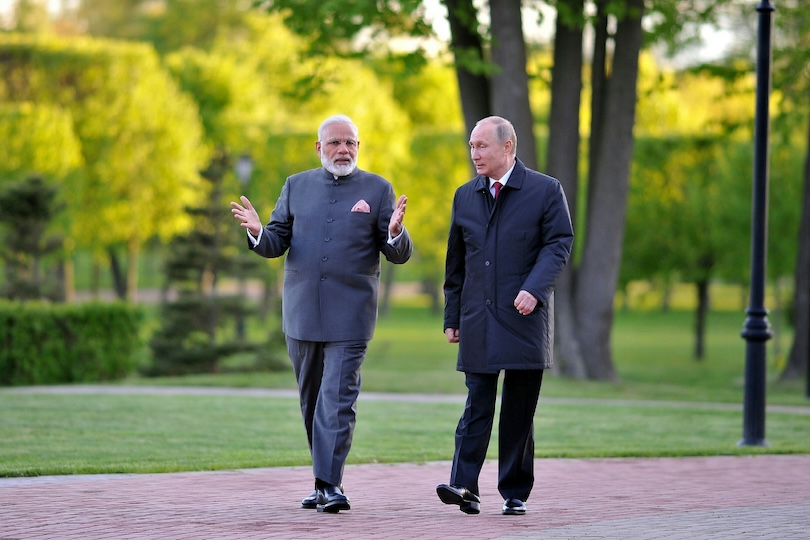“Hearing the word Russia, the first word that comes to every Indian’s mind is India’s companion of happiness and sorrow” Indian Prime Minister Modi described India-Russia relations this way. Modi arrived in Moscow on July 8, 2024, to begin his visit to Russia and attend the 22nd Annual India-Russia Summit. During his visit, Modi aimed to promote peace and strengthen bilateral ties, culminating in the signing of nine agreements. The agreements cover various areas including defence, energy and trade and highlight the multifaceted cooperation between the two countries.
Modi’s decision to choose Russia over neighboring countries for his first bilateral visit marks a departure from tradition. This marks a change in India’s diplomatic thinking and also reflects a change in India’s diplomatic style and methods. Modi’s visit to Russia is of great significance from the perspective of the message conveyed and the timing. It is worth noting that this visit comes at a time when the war between Russia and Ukraine is ongoing, and India has maintained a neutral stance. India abstained from voting on a U.N. resolution condemning Russia’s actions but also called on Russia to end the war. In his meeting with Putin, Modi made it clear that “there are no solutions on the battlefield” and called for a diplomatic end to the war.
The visit comes after Modi attended the G7 summit in Italy, where he engaged with Ukrainian President Volodymyr Zelensky and other leaders. The visit coincides with a meeting of the North Atlantic Treaty Organization (NATO) in Washington, D.C., commemorating the alliance’s 75th anniversary. Modi’s visit has been criticized, especially by Ukraine’s president, who called the trip “very disappointing”. The Indian Prime Minister will realize that the decision to meet Putin now will not please Western leaders, especially in light of the ongoing NATO summit. The Kremlin was quick to point this out, suggesting “how jealous the West is”. Jealousy or not, we can bet that the West – especially the United States – will be watching the visit closely.
Modi also implicitly criticized the current “influence-oriented world order” and advocated India’s role in the emerging multipolar world. He asserted that today’s world requires “integration rather than influence”, emphasizing the need for a collaborative approach rather than the exertion of dominance.
The visit underscores Russia’s continued importance as an important partner and friend to India. This puts to rest speculation that India-Russia relations are weakening as India becomes less dependent on Russia and strengthens ties with the United States and the West. Although India’s relations with the United States have become increasingly close in recent years, the India-Russia relationship remains a “special and privileged strategic partnership.” This dynamic reflects India’s adeptness in managing relations with the United States and Russia and its strategic autonomy. This sends a signal that India will continue to build deeper ties with the West, but not at the expense of having to pick sides.
While India-Russia relations are historic, they are more than just emotional and ceremonial ones. In the current geopolitical changes, in which Russia is increasingly aligned with China, it is crucial for India to assess the “unrestricted” partnership between the two countries. The recent meeting between President Putin and President Xi described the relationship between the two countries as “the best period in history” and emphasized the importance of Russia-China friendly relations to India. India seeks to ensure that Beijing does not become a factor that undermines its relationship with Russia. India hopes to leverage Russia’s influence in the event of Chinese adventurism on India’s borders, as Russia is India’s important geopolitical hedge in the current global order. Therefore, the “China factor” is an important driver of close exchanges and cooperation between India and Russia. On the contrary, relations with India provide Russia with strategic mobility. Russia recognizes that increasing reliance on China may not be in its broader interests, so maintaining strong relations with India is an important part of its foreign policy.
In a rapidly changing global landscape, India’s ability to maintain relations with the West and Russia while pursuing its own national interests proves its strategic autonomy and approach to multilateral alliances. By reaching out to Putin, Modi clarified that Russia remains a priority for India and that this partnership is unlikely to change in the foreseeable future.
Further reading on electronic international relations

